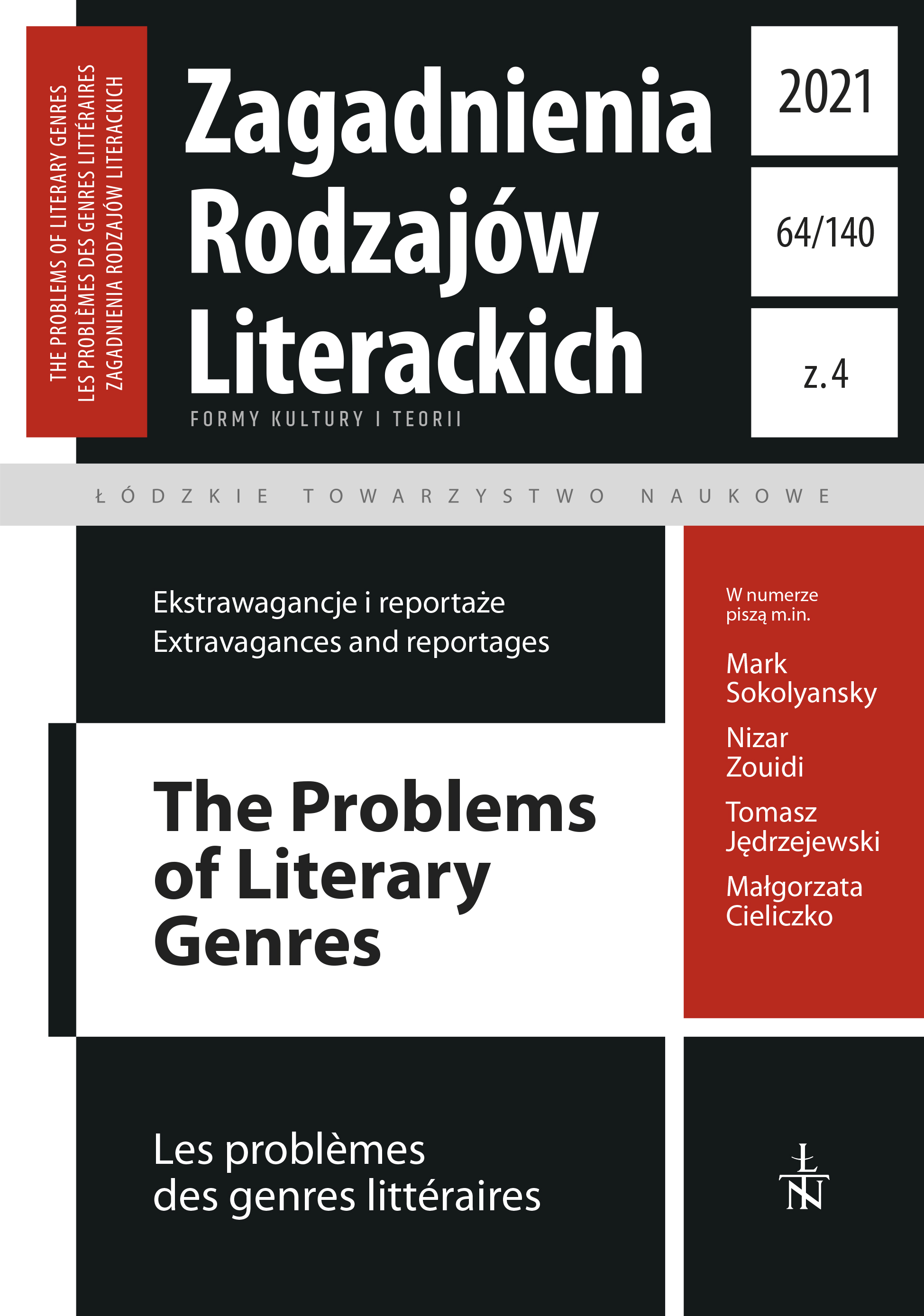Oralność w oryginale i przekładzie portugalskojęzycznej literatury afrykańskiej — przejawy i funkcje
DOI:
https://doi.org/10.26485/ZRL/2021/64.4/6Słowa kluczowe:
Luzo-African literature, orality, postcolonialism, translation, cultureAbstrakt
Postcolonial African literatures written in Portuguese build their identity by modifying existing linguistic and literary norms. One of its manifestations is including in writings elements of traditional orality. The orality becomes an indicator of identity, it differentiates literatures of colonies and ex-colonies from the one written in the metropolis, it allows to preserve and transmit popular wisdom and references to traditional forms. Although oral elements are an important part of the original, as they create a separate literary style and genre, they are often neutralized in translation. This unfavourable tendency may be the result of an unawareness regarding the importance of orality, lack of sensitivity and an attempt to adjust the translated text to the norms of the target literature. This work aims to gather and analyse different indicators of orality in African literatures written in Portuguese, to examine if and how they are transmitted in Polish translations. To do so, we follow the division of manifestations of orality elaborated by Walter Ong. The awareness of the role played by orality in the analysed texts and sensitivity to its indicators in the texts will allow translators to more consciously choose the strategies and techniques which enable them to show the original’s diversity to target recipients.
Liczba pobrań
Bibliografia
Couto Mia (1992), Terra sonâmbula, Leya, Lizbona.
Couto Mia (2010), Lunatyczna kraina, przeł. Lipszyc M., Karakter, Kraków.
Lopes da Silva Baltasar (1960), Nhô Chic’Ana [w:] Antologia da ficçao cabo-verdiana contemporânea, red. Lopes da Silva B., Editora Henriquianas, Praia CV.
Lopes da Silva Baltasar (1978), Nho Chic’Ana [w:] Opowiadania portugalskie XIX i XX w., wybór i przekł. Chabasińscy K. i W., Klave J.Z., Wydawnictwo Literackie, Kraków.
Luandino Vieira José [1963] (2004), Estória da galinha e do ovo [w:] Luuanda, Caminho, Lizbona.
Luandino Vieira José (1978), Opowiastka o kurze i jajku [w:] Opowiadania portugalskie XIX i XX w., wybór i przekł. Chabasińscy K. i W., Klave J.Z., Wydawnictwo Literackie, Kraków.
Luandino Vieira José (2014), Historia kury i jajka [w:] Luuanda, przeł. Woicka D., Jakubowska Z., Muzeum Historii Polskiego Ruchu Ludowego i Instytut Studiów Iberyjskich i Iberoamerykańskich Uniwersytetu Warszawskiego, Warszawa.
Pepetela (2001), Jaime Bunda agente secreto, Dom Quixote, Alfragide.
Pepetela (2010), Tajny agent Jaime Bunda, przeł. Stanisławska Z., Claroscuro, Warszawa.
Berman Antoine [1985] (2009), Przekład jako doświadczenie obcego [w:] Współczesne teorie przekładu, red. Bukowski P., Heydel M., Wydawnictwo Znak, Kraków.
Brugioni Elena (2016), „Para mais vozes”. Escrita e oralidade nas literaturas africanas de língua portuguesa. Pluralidades estéticas, desafios críticos, „Mulemba”, nr 2 (14).
D’Angelo Biagio (2018), Para um mapa crioulo e sonâmbulo de imbricaçoes lusi-afro-indianas [w:] Figures of Transcontinental Multilingualism, red. Alfons Knauth K., Dasgupta S.C., Lit, Zurych.
Dębska Karolina (2009), Neutralizacja różnorodności językowej a usuwanie obcości z przekładu, „Między oryginałem a przekładem. Obcość kulturowa jako wyzwanie dla tłumacza”, nr 15.
Ettobi Mustapha (2015), Translating orality in the postcolonial Arabic novel: A study of two cases of translation into English and French, „Translation Studies” nr 2 (8).
Fonseca Nazareth Soares Maria (2016), Literatura e oralidade africanas: mediaçoes, „Mulemba”, nr 2 (14).
Heydel Magda (2009), Zwrot kulturowy w badaniach nad przekładem, „Teksty Drugie”, nr 6.
Lefevere André (1992), Translation, Rewriting and the Manipulation of Literary Fame, Routledge, Londyn – Nowy Jork.
Mata Inocencia (2015), Géneros narrativos nas literaturas africanas em portugues — entre a tradiçao africana e o cânone ocidental, „SCRIPTA”, nr 37 (19).
Ong Walter Jackson (2011), Oralność i piśmienność. Słowo poddane technologii, przeł. Japola J., Wydawnictwo Uniwersytetu Warszawskiego, Warszawa.
Tymoczko Maria [1999] (2009), Literatura postkolonialna i przekład literacki [w:] Współczesne teorie przekładu, red. Bukowski P., Heydel M., Wydawnictwo Znak, Kraków.
Venuti Lawrence [2000] (2009), Przekład, wspólnota, utopia [w:] Współczesne teorie przekładu, red. Bukowski P., Heydel M., Wydawnictwo Znak, Kraków.
Wołek Katarzyna (2006), Obecność trzeciej kultury w przekładzie małych literatur. Na przykładzie literatury chorwackiej, „Między Oryginałem a Przekładem. Nieznane w przekładzie”, nr 11.







